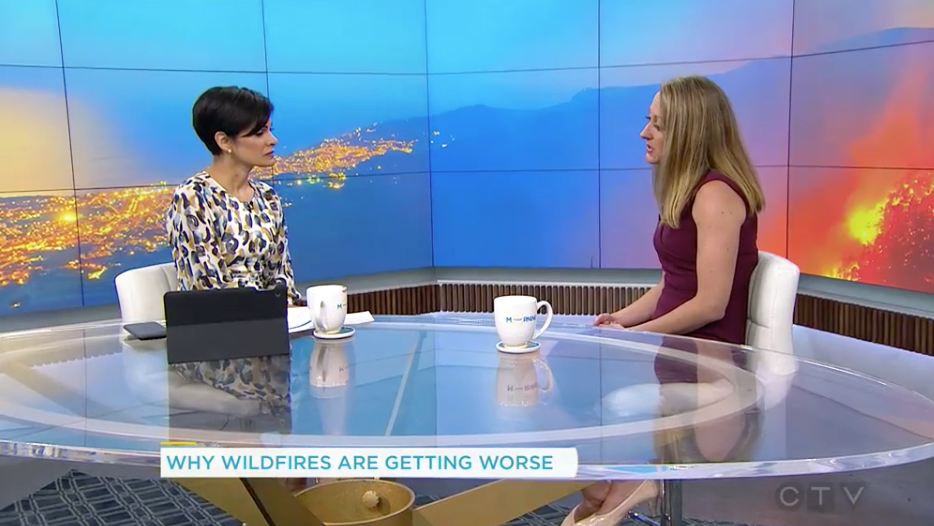An intense enthusiasm to “unscramble” science – coupled with a gift for enthusiastic story telling – has led popular University of Guelph ecology professor Merritt Turetsky to the commentator’s chair of a new mini-feature called Science Roundup on the CTV national network.
The first regular installment with Turetsky at the helm airs at 7:30 a.m. Monday, Sept. 10. She’ll return every two or three weeks thereafter, depending on her academic schedule and availability.
Turetsky holds a prestigious Canada Research Chair in integrative ecology. She’s an expert in permafrost degradation and the changing wildfire regimes associated with climate change.
Through her career, she’s developed a keen awareness of journalists’ needs. This summer, she’s been busy with widespread media engagement and science communication related to severe fire activity in Ontario and elsewhere.
“I know what kind of deadlines journalists are under,” she says. “I always return their calls, and as a result, I’ve built up a good trust-based relationship with a number of them.”
She’s also learned how to succinctly explain science. That impressed CTV, which after working with her as a source on several stories, welcomed her suggestion of a five-minute Science Roundup portion of CTV’s Your Morning.
“They have roundups for sports and other subjects, but not science,” she says. “I’d only worked with them on stories for what we call ‘downer’ science, like disasters, but I explained there are so many upbeat inspirational science stories to tell.”
She and host Ben Mulroney recorded a pilot of the show a few weeks ago, with a highly varied story lined up regarding the Mayan civilization, cheating and cooperation in sawflies, and viral attacks on koalas.
Network decision makers liked it, and last week she was offered the role as commentator.
Turetsky will choose three story topics per segment, provide them mid-week so producers have time to source supporting visuals (called b-roll), and then go to CTV’s Toronto studio to discuss them live with show hosts such as Mulroney.
For story ideas, Turetsky will tap into her own knowledge of recently published work and consult with a variety of sources within science journalism. She’s also eager to hear from researchers across Canada with story ideas – in all aspects of science. And her goal is to eventually develop this science communication project into a more interactive model, where viewers have an opportunity to pose questions or make suggestions.
Turetsky says this opportunity is arising at a critical time for scientists’ relationship with the public.
“Science is often scrambled, with so many parts to it,” she says. “The public gets disconnected if the story’s not clear. I believe that the public misunderstands much about science, and if this goes on long enough they will start to distrust science. I want to unscramble it for people, to communicate why scientists love science, how scientists do science, because it’s an incredible process of gaining knowledge.”
Turetsky will be augmenting stories on Science Roundup with items on a new twitter account associated with this initiative, called Science Unscrambled (@unscrambled_sci). Other social media tools are expected to follow.
